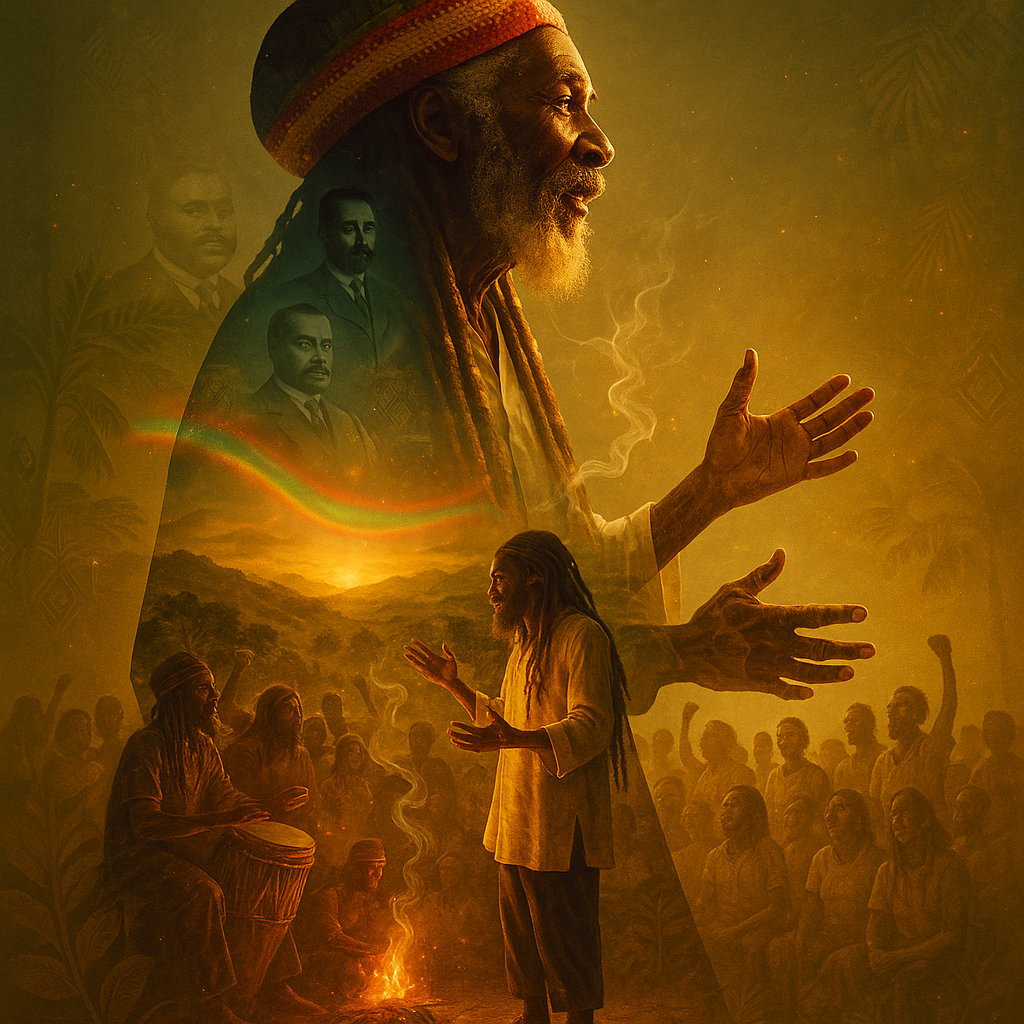Understanding Rastafarian Beliefs: A Journey Through Faith, Culture, and Heritage
When you immerse yourself in the vibrant world of Rastafarianism, it's like stepping into a colorful tapestry woven with threads of biblical teachings, African traditions, and a deep sense of cultural identity. This spiritual movement, which began in Jamaica in the 1930s, is far more than just dreadlocks and reggae music—it’s a way of life grounded in rich beliefs and traditions that resonate with millions around the globe.
The Roots of Rastafarian Belief: Bridging the Bible and African Heritage
Rastafarian beliefs are a unique blend of biblical scriptures and African-centric ideologies. Think of it like a river with two tributaries—one flowing from the ancient texts of the Bible and the other from the deep wells of African cultural heritage. Together, they converge into a spiritual stream that sustains the Rastafarian way of life.
Central to this belief system is the idea that Rastafarians are descendants of one of the twelve tribes of Israel, with a special connection to the Tribe of Judah. Much like a family heirloom passed down through generations, this belief symbolizes a link to divine ancestry and a sense of purpose.
Haile Selassie I: The Lion of Judah
If you were to visit the heart of Rastafarian faith, you'd find one name written boldly across its ethos: Haile Selassie I. The former Emperor of Ethiopia is revered as a divine figure, a living embodiment of Jah (God). Rastafarians see him as the prophesied Messiah, fulfilling biblical promises of redemption and liberation.
The coronation of Haile Selassie in 1930 was seen as a monumental event, akin to the rising of the sun after a long night. His titles—"King of Kings, Lord of Lords, Conquering Lion of the Tribe of Judah"—echo biblical prophecies, solidifying his place in Rastafarian theology.
Africa: The Promised Land
For Rastafarians, Africa is not just a continent; it's the Promised Land, a spiritual homeland often referred to as Zion. In contrast, Western society is seen as Babylon, a symbol of oppression, materialism, and spiritual decay. This dichotomy forms the backbone of Rastafarian philosophy, urging followers to reject Babylonian systems and reconnect with their African roots.
The dream of repatriation to Africa—both physically and spiritually—is a recurring theme in Rastafarian teachings. It's like a compass pointing home, guiding believers toward liberation and unity with their ancestral land.
Livity: Living in Harmony with Jah
At the core of Rastafarian practice is the concept of Livity, a way of life that emphasizes living in harmony with nature, the divine, and oneself. Imagine planting a seed in fertile soil and watching it grow into a flourishing tree—this is Livity in action. It’s about nurturing the body, mind, and spirit to align with Jah’s will.
This holistic approach to life is reflected in dietary practices (such as the Ital diet, which avoids processed foods and focuses on natural, plant-based nourishment), communal living, and the sacred use of cannabis as a spiritual sacrament.
The Global Impact of Rastafarianism
Although Rastafarianism originated in Jamaica, its influence has spread worldwide, thanks in part to the legendary Bob Marley. His music serves as a bridge, carrying messages of love, unity, and resistance across cultures and generations. Like a beacon of light, Marley’s lyrics illuminate the core values of the Rastafarian movement, inspiring millions to explore its teachings.
Final Thoughts: The Spirit of Rastafari
Rastafarianism is more than a religion—it’s a cultural and spiritual movement that calls for self-awareness, unity
